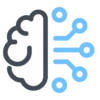Humanization means recognizing and respecting the unique qualities, experiences, and emotions of individuals and groups within various facets of your organization and those your organization deals with.
One way to ensure that humanization is central to how your organization deals with people is to think about how you use your people master data and the systems associated therewith, especially those focused on customer or people data.
Such systems are invaluable in enhancing humanization across hiring, evaluation, training, and customer relations. Here, we explore how people-based MDM systems can assist in humanization.
Understanding Humanization
Humanization is not merely a buzzword but a fundamental aspect of fostering meaningful connections in an increasingly digital and data-driven world. At its core, humanization is about treating individuals as unique, complex beings, rather than reducing them to stereotypes or statistics. It’s a process of acknowledging individual experiences, backgrounds, and emotions.
In essence, humanization is a response to the dehumanizing tendencies that can creep into modern business practices. In a world driven by algorithms and automation, where it’s easy to lose sight of the human element, it should be an important focus.
Whether you’re dealing with employees, customers, or potential hires, understanding the essence of humanization is pivotal.
Role of MDM in Humanization
Master Data Management (MDM) systems offer a comprehensive approach to managing data related to customers or people within your organization. These systems serve as a centralized repository for crucial data, ensuring accuracy, consistency, and accessibility. While MDM systems are primarily associated with data governance and data quality, they have a far-reaching impact on the humanization efforts of any organization.
At face value, one might say that there is a conflict between MDM and humanization.
In traditional MDM systems, data is often treated as mere records or entities without considering the individuals they represent. This can make data seem impersonal and detached from the people it represents.
MDM systems also typically aim to standardize people’s data to maintain consistency. While this is crucial for data quality, it can sometimes lead to oversimplification and loss of nuance, which may devalue the unique characteristics of the individual.
Personalization and Empathy
One of the key aspects of humanization is personalization; acknowledging and catering to the unique needs and preferences of individuals. MDM systems like the Pretectum CMDM excel in this area by allowing for the collection and analysis of rich customer or employee data. These systems enable the capture of data related to personalized interactions and tailored experiences, which are pivotal in fostering empathy.
For those seeking to enhance humanization, it’s essential to consider how any MDM system can help you understand the unique needs, preferences, and behaviors of individuals. This level of personalization goes beyond treating people as mere data points; it shows that you recognize and respect their individuality.
In the context of customer relations, personalization can manifest as customized product recommendations, targeted marketing messages, or tailored customer service interactions. In employee management, it can translate into personalized training plans or individualized career development strategies. The people master data management system acts as the backbone of these initiatives, providing the data foundation upon which personalization is built.
With a system like the Pretectum CMDM, you can strike a balance between standardization and personalization by allowing for custom data attributes and profiles. For instance, including fields for personal interests, preferences, or unique identifiers can humanize the data and acknowledge individuality. Standardization should always focus on core data elements (e.g., names, and addresses) while allowing flexibility for additional personalized data.
Diversity and Inclusion
Diversity and inclusion have become central pillars of progressive organizations. Embracing diversity means recognizing and celebrating differences in gender, race, ethnicity, age, and more. It’s about creating an environment where every individual feels valued and respected.
Your people-based MDM systems play a crucial role in this endeavor. These systems can capture diverse customer or employee data, helping organizations embrace inclusivity. Potential buyers should evaluate how the system handles and manages diverse data, ensuring it aligns with humanization goals. By considering individual backgrounds and characteristics, you create an environment that values diversity and fosters inclusion.
In practical terms, MDM systems can help organizations track diversity metrics, monitor inclusivity efforts, and ensure that diversity goals are met. This data-driven approach to diversity and inclusion fosters a workplace or customer environment where every individual feels like an integral part of the whole.
Data-Driven Decision-Making
Data-driven decision-making is a fundamental aspect of modern business operations. Whether you’re making hiring decisions, evaluating employee performance, or shaping training programs, having access to relevant and accurate data is indispensable.
The Pretectum CMDM system offers a goldmine of data that can inform these critical decisions. For potential buyers seeking to humanize these processes, it’s essential to consider how the system provides actionable insights to support fair and empathetic decision-making.
In the context of hiring, the system can provide insights into candidate demographics, performance data, and potentially even past interactions with your organization. This data can help you make decisions that are not influenced by biases but are rooted in objective criteria. It ensures that every candidate is evaluated on their merits and potential, rather than being subjected to stereotypes.
In employee evaluation, MDM systems can offer a holistic view of individual performance, including feedback from various touchpoints within the organization. This enables more comprehensive and fair assessments, leading to more accurate evaluations and potentially identifying areas for growth and development that might have otherwise been overlooked.

Enhanced Customer Relations
Today’s customers no longer want generic interactions; they crave personalized experiences that resonate with their individual needs and preferences. This shift in customer expectations places a premium on the ability to provide tailored interactions.
The CMDM is instrumental in enhancing customer relations by enabling organizations to offer personalized experiences. For potential buyers, it’s crucial to assess how the system facilitates effective complaint handling, personalized customer service, and customer feedback analysis.
Effective complaint handling is a critical component of customer relations. When a customer has a complaint, they want to be recognized, acknowledged, heard, and understood. An MDM system can help customer service teams access customer preferences, and potentially their history and past interactions, enabling them to provide personalized solutions and empathetic responses. This not only resolves issues efficiently but also fosters trust and loyalty.
Personalized customer service goes beyond addressing complaints. It means recognizing a customer when they contact your organization and understanding their unique needs. MDM systems can centralize customer data, making it easier for service representatives to provide personalized experiences. Whether it’s a tailored product recommendation, a proactive follow-up on a previous inquiry, or acknowledging a milestone in the customer’s journey, personalization enhances the human touch in customer relations.
Analyzing customer feedback is another dimension of enhancing customer relations. CMDM can aggregate feedback from various channels, giving organizations a comprehensive view of customer sentiment. This data-driven approach enables organizations to make changes and improvements that align with customer preferences, fostering a more humanized customer experience.
Transparency and Trust
Trust is the bedrock of humanization. Whether you’re dealing with employees or customers, transparency is a key element in building and maintaining trust.
CMDM contributes to transparency by ensuring data accuracy and consistency. You should explore how the system guarantees data integrity and compliance with privacy regulations. This transparency builds trust with customers and employees alike, a vital component of humanization.
With customer data, transparency means providing customers with clear information about how their data is collected, used, and protected. Pretectum CMDM can be used to track and manage data privacy and consent preferences, demonstrating a commitment to transparency and ethical data practices. This not only fosters trust but also ensures compliance with evolving data protection regulations.
In the context of employee data, transparency means providing employees with insight into how their data is used for evaluation, career development, and performance feedback. CMDM can aid in this transparency by allowing employees to access their own data, understand how it’s used, and even contribute to their own performance evaluations. This level of transparency ensures that employees feel empowered and trust that their data is being used fairly and ethically.

Scalability and Efficiency
While humanization is essential, you should also consider scalability and efficiency. The CMDM should accommodate the growing complexity of your data while streamlining processes just as the Prectetum CMDM does. Balancing humanization with efficiency ensures that personalization doesn’t lead to inefficiencies.
Scalability is critical in the context of CMDM. As your organization grows, so does the volume and complexity of your data. Potential buyers should assess how well any MDM system can adapt to increasing data loads and evolving data sources. A scalable system ensures that your organization can continue to humanize its interactions with a growing customer base or workforce.
Efficiency is equally important. While personalization and humanization are valuable, they should not come at the cost of operational efficiency. CMDM should streamline data management processes, making it easier to access and utilize data for personalized interactions. Potential buyers should look for features that automate data integration, data quality checks, and data governance, allowing the organization to focus on humanization efforts rather than data management challenges.
Balancing humanization with efficiency requires thoughtful design and implementation of MDM systems. It’s about harnessing the power of data to enhance interactions while ensuring that data-related tasks are not burdensome or time-consuming.
Master Data Management (MDM) systems and CMDM (Customer Master Data Management) Systems in particular, are indispensable tools in the quest for humanization within your organization. You should carefully assess how an MDM system can support personalization, diversity, data-driven decision-making, enhanced customer relations, transparency, and scalability.
By harnessing the power of CMDM, you can navigate the path of humanization more effectively, recognizing and respecting the individuality of customers and employees. The CMDM system serves as the foundation upon which personalized interactions, fair evaluations, and transparent processes are built. Ultimately, this fosters empathy and trust, nurturing meaningful connections and ensuring that the human element remains at the heart of business interactions in the digital age.


